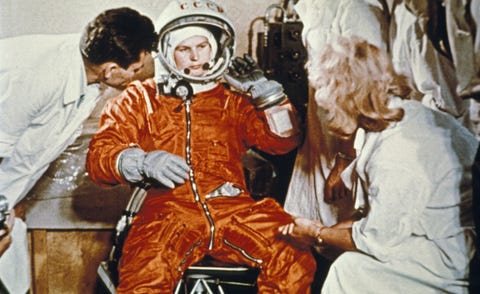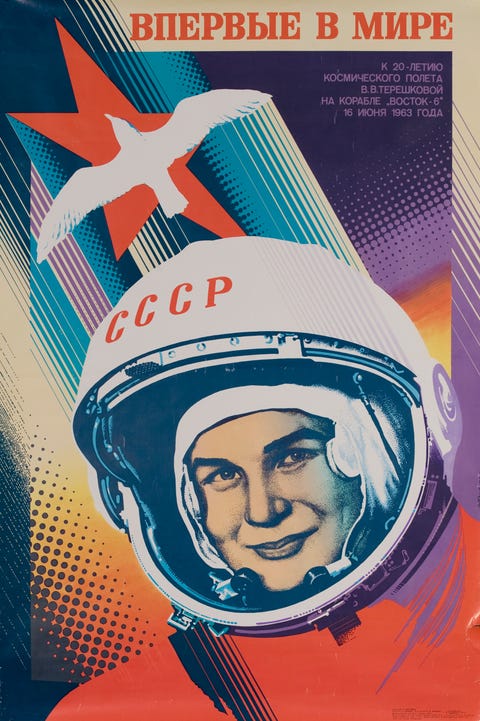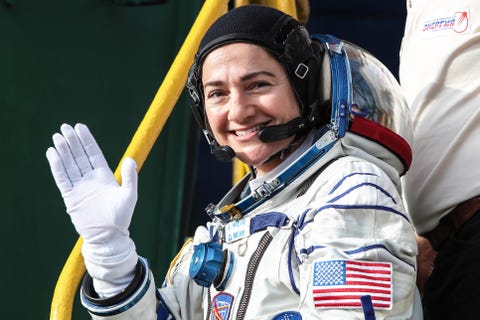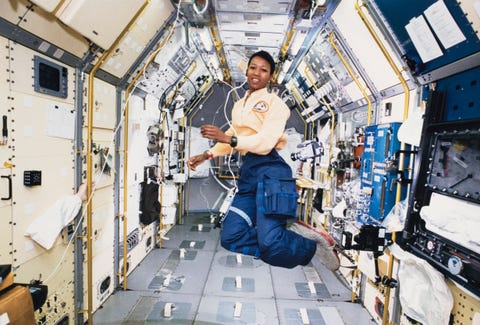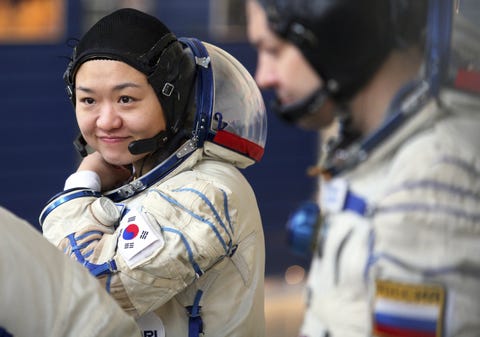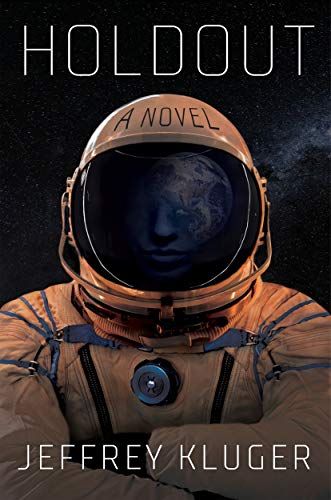It is just as nicely that Valentina Tereshkova was not around to get her fingers on a duplicate of the June 17, 1963 version of The New York Occasions. Tereshkova would not likely have been equipped to go through the Periods no make a difference what, because Western papers didn’t significantly flow into in the Soviet Union—or any where else in the Eastern bloc for that make a difference. But even if they experienced, Tereshkova would have missed that Times version: Just the working day right before, she experienced lifted off from the Baikonur Cosmodrome in what is today the nation of Kazakhstan, aboard her Vostok 6 spacecraft, getting to be the 12th person—and the very first female—in place.
SOVIET ORBITS Woman ASTRONAUT, the Moments headline read through, respectfully ample. The initial paragraph taken care of the businesslike tone, identifying her as a Junior Lieutenant in the Soviet Air Pressure. So did the future paragraph, describing how Tereshkova was communicating by radio with fellow cosmonaut Valery Bykovsky, who was also aloft in his Vostok 5 spacecraft. But then issues turned sour.
There was the reference to her in the 3rd paragraph as “a heavyset parachutist.” There was that business enterprise later on on about the “elegant blue linen costume and stiletto heels” she wore when she achieved the Soviet press—with no corresponding point out of Bykovsky’s ensemble. There were being the estimates from everyday New Yorkers who were questioned to answer to Tereshkova’s accomplishment.
“It only proves 1 thing—that you cannot get absent from gals no make a difference exactly where you go,” explained one particular passenger—glamorously described as an “air traveler”—at New York Worldwide Airport, in the days prior to it was JFK.
“They should not deliver a woman up there on your own,” explained a single girl in Moments Square. “She ought to have a male with her.”
Record would observe that Tereshkova really a lot did not need to have a gentleman to circle the Earth 28 instances in her possess spacecraft, remaining aloft for nearly three days. But that didn’t cease tongues from wagging and men and women from disapproving of the whole plan of a girl astronaut. Background would be aware much too that it would be one more 20 many years, virtually to the day, in advance of the U.S. would follow the guide of the U.S.S.R., when Sally Journey turned the initially American girl in place.
But that was then and this is now—sort of. Just shy of 600 human beings have flown in house, but as of this spring, only 65 of them have been ladies, according to NASA. Which is not absolutely nothing. Females have commanded the place shuttle, commanded the space station in 2020, astronauts Jessica Meir and Christina Koch conducted the 1st all-female spacewalk. What is a lot more, NASA’s Artemis lunar program is quite express in its intention to land “the initially girl and the upcoming man” on the moon by the mid-2020s. And if NASA understands what is smart—and NASA normally does know what’s smart—the betting below is that that female will also command the mission.
Even though space exploration’s previous has been mostly a male enterprise—especially in the earliest days, defined by rocket-jock exam pilots with their sports activities cars and trucks and groupies and taste for really hard-drinking—the future is most likely to be feminine. NASA tapped 18 astronauts as candidates for the Artemis application and took care to divide them evenly involving nine males and nine ladies. Some of the most effective-identified astronauts of the shuttle and area station era have been girls: America’s Peggy Whitson—who has accrued 665 days in space in excess of the training course of her a few missions, the equivalent of a round-trip to Mars Chiaki Mukai, the first Japanese lady in place Yi So-yeon, the initial Korean female Mae Jemison, the initially African American lady.
It ought not have to be said—though in some quarters it is possibly a necessary reminder—that these and the other 5 dozen gals in space are every bit the cosmic equivalent of their male counterparts. But could possibly they in some strategies be greater? Might they provide characteristics gentlemen lack?
I thought so (and still think so) when I was composing my new novel Holdout, about Walli Beckwith, an American astronaut who refuses to occur household from the Worldwide Area Station when an emergency forces her crewmates to evacuate. Beckwith hazards her career—and her life—to make a stand in house in get to right a grievous incorrect having location on Earth. For the initially chapter of the e-book, Walli was Wally, she was a he. But when I completed creating that chapter I felt oddly dissatisfied, oddly limited my guide character required to be a woman—needed to be a woman, I felt.
I preferred a character who reminded me of Elizabeth Cady Stanton, Rosa Parks, Harriet Tubman, Eleanor Roosevelt, women who stood up for human rights—and did so without the need of the structural pros of entry to electricity and impact that males have traditionally relished. When Wally turned Walli, she became richer, extra advanced, more nuanced, additional humane. Her defiant stand turned braver—made, as it was, in opposition to a system that stays far more patriarchal than matriarchal. And I found—fair or not—that her associations with the other figures grew to become much more layered.
These exact same attributes could possibly even make females a better choice for long-length house missions than males are. Psychological intelligence is not the exclusive province of women, but it is generally expressed far more entirely, far more regularly by them than it is by men. And which is a quality that will be in deep need to have as humans check out the really hard and collaborative company of homesteading the moon or, even far more remotely and challengingly, Mars.
There is a selected type of reverse bias in framing women of all ages as the a lot more compassionate, intuitive, interpersonally adept gender. There are obtuse gals and empathic males egocentric women of all ages and selfless guys. There is cowardice in each genders and braveness in the two. And all of this is just assigned-at-beginning gender. None of it even normally takes into consideration the rainbow of characteristics observed across the arc of far more fluid genders.
Still, as with so many other issues, area has been an overwhelmingly men’s recreation extended more than enough. It was a men’s sport this summer in the bro-billionaire levels of competition among Richard Branson and Jeff Bezos to be the to start with to make their suborbital jaunts. It was a man’s game when area was a proxy war among the U.S. and the U.S.S.R., battling for the celestial large ground. It was a man’s video game in the many years soon after. Neil Armstrong, bless him, gave us his historic but stilted “One smaller step” statement. May there have been a little something extra lyrical from a woman? 20-four males have found the moon up close and came again to convey to us about it. What diverse perspective—about the nature of humanity, the crucial to explore—might a girl have carried house with her?
We’re getting out slowly and gradually, and we’ll discover out extra as ever larger figures of women choose their put in—and stake their assert to—space. From my small earthbound viewpoint, I can only say I’m happy I created Wally a Walli. I had far more to give the character than I usually would have—and I realized a lot more from her, also.
This articles is made and preserved by a 3rd party, and imported onto this site to assistance customers deliver their e-mail addresses. You may well be ready to discover a lot more information and facts about this and comparable written content at piano.io

